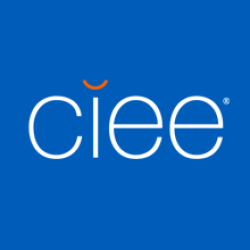Q&A with Dr. Alan Masters, CIEE's Academic Director for STEM
By Alexandra Wood
In response to demand from STEM students seeking to add an international component to their education, CIEE is committed to expanding our portfolio of opportunities for STEM majors. Dr. Alan Masters, who has taught for CIEE in Monteverde, Costa Rica for the last 25 years has taken on a new role as Academic Director for STEM and he will oversee the development of programs that meet the specific needs of undergraduates majoring in science, technology, engineering, math, and psychology as well as the launch of new intro-level courses, including lab courses, that are appropriate for students from all majors. In a Q&A, Alan talks about his experiences leading students in Costa Rica, the rise in STEM students studying abroad, and how he has seen students change over the years.
How did you get started with CIEE?
I studied abroad in Costa Rica as a first-year graduate student, where I later spent four years chasing and investigating butterflies for my dissertation. CIEE was interested in a study abroad program there and asked me to guide them through the Cloud Forest. They later hired me to lead the resultant CIEE Tropical Ecology & Conservation program in Monteverde.
Share some of your favorite memories leading CIEE students in Costa Rica.
Since 1993, I have had the pleasure of leading and teaching over 1,500 CIEE students. Those times include humpback whales, sloths, bright blue morpho butterflies, monkeys, botanical wonders and the look on students' faces when a sea turtle swims by. Favorite memories also include group singalongs on the beach under an impossible number of stars, diving into a waterfall after a long hike in the rainforest, bioluminescence during a midnight dip in the ocean and watching Monteverde's clouds roll in to replace a rainbow, or two.
How have students changed over the years?
Today's students are problem-solvers. They are more interested in teaching themselves than being taught. Instructing them is more facilitating than lecturing. Fortunately, experiential and interactive learning has always been a large part of what we do, and we are getting better at it all the time.
To what do you attribute the recent rise in STEM students studying abroad?
STEM is increasingly global and benefits from cultural diversity, whether in the U.S. classroom, laboratory, industry or learning and working abroad. STEM is very much a group activity and both discovery and application involves intercultural competence, in addition to scientific and teamwork skills. Think of climate change, evolution, algorithm design, GMOs, vaccines and it becomes clear how culture is inextricably tied to STEM in so many ways. Study abroad is an important venue for STEM students to explore the relationship between STEM, society and culture, while developing important intercultural skills.
What do you like best about your role at CIEE?
In my new role as CIEE Academic Director for STEM I have the great pleasure to advance STEM study for U.S. undergraduates around the world. Seeing CIEE students grow and mature into thoughtful, caring and global professionals is what I have been a part of the last 25 years, in a tiny and wonderful Central American country. Expanding that to the entire globe is awesome.
Learn more about CIEE's stem offerings, including direct enroll with STEM, CIEE intensive STEM programs, and Open Campus Block programs at ciee.org/stem. And in case you missed it, check out Alan's Top 10 reasons CIEE's STEM and Society courses meet the needs of STEM undergraduates.
Related Posts
CIEE Planting 900+ Trees in Monteverde
To symbolize the impact of planting seeds of goodwill between peoples, CIEE is planting a tree for each of our 900+ employees around the world, representing our individual and collective... keep reading
CIEE Acquires New Costa Rica Campus to Support Expanded STEM Programming
The Council on International Educational Exchange (CIEE), the country's oldest and largest nonprofit study abroad and intercultural exchange organization, has purchased a 155-acre residential and research campus in San Luis de Monteverde, Costa Rica.
CIEE Tropical Ecology + Conservation Alumni Publish Paper in Journal of Insect Behavior
Two alumni of CIEE's Tropical Ecology + Conservation program in Monteverde, Costa Rica had their independent research projects on dung beetles published in the Journal of Insect Behavior last month... keep reading




